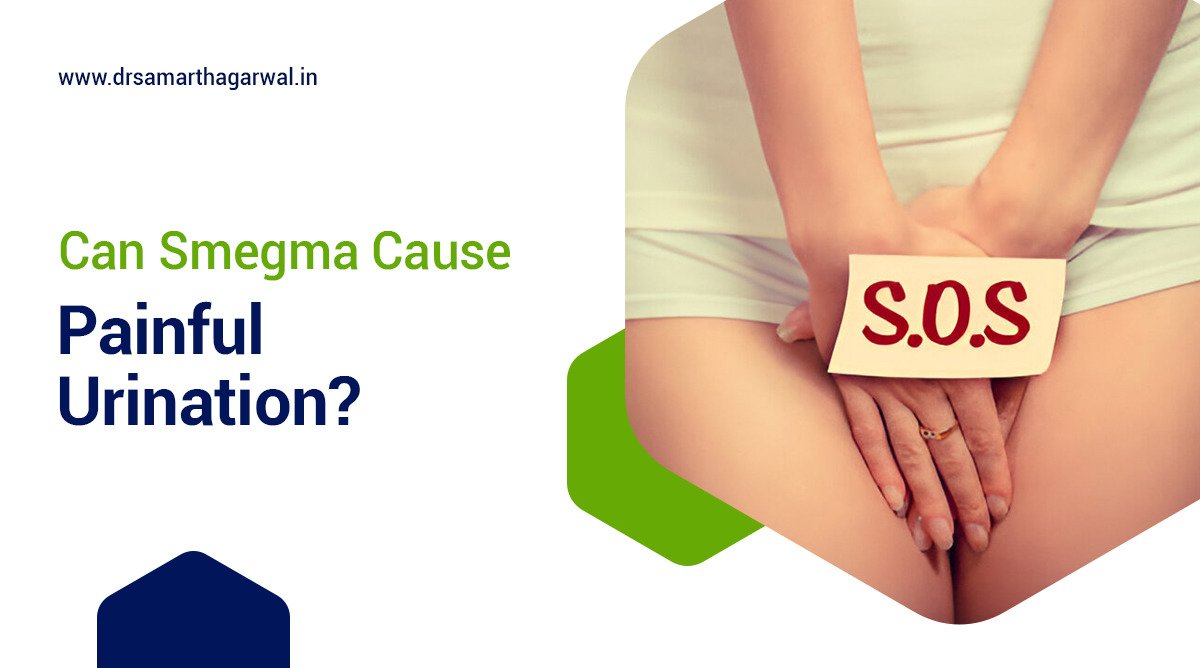Smegma is a natural substance that can accumulate under the foreskin in males or around the clitoris in females, often sparking curiosity and concern. Many people wonder if smegma is linked to painful urination. This article will explain what smegma is, explore whether it is associated with pain during urination, and provide guidance on how to recognize and treat any related symptoms. Additionally, hygiene tips to prevent buildup and advice on when to seek medical intervention will be discussed.
What is Smegma?
Smegma is a thick, white substance that forms under the foreskin of uncircumcised males, consisting of natural lubrication, skin oils, and dead skin cells. This is a normal biological process that helps protect and lubricate the glans.
However, if not properly maintained, smegma can accumulate and lead to irritation or infection. The build-up occurs due to the natural shedding of skin cells and the production of oils that become trapped in the folds of the foreskin, a situation exacerbated by poor hygiene practices.
Maintaining good hygiene, particularly through gentle washing under the foreskin, is the most effective way to manage smegma accumulation. Keeping this sensitive area clean promotes healthier conditions and reduces the unwanted odor or discomfort associated with smegma build-up.
Can Smegma Cause Painful Urination?
Yes, smegma can cause painful urination. Excessive buildup of smegma can lead to bacterial infections, which may result in urinary tract infections (UTIs). One of the symptoms of a UTI is painful urination. Here’s a detailed explanation:
Smegma and Painful Urination
- UTI Connection: Smegma can create a breeding ground for bacteria under the foreskin or in the genital folds. This bacteria can travel up the urethra and into the bladder, potentially causing a UTI.
- Symptoms of UTIs: Painful urination is a common symptom of UTIs, along with frequent urination, cloudy urine, and a strong odor to the urine.
- Balanitis: Another condition related to smegma buildup is balanitis, an inflammation of the head and foreskin of the penis. Balanitis can also cause painful urination, along with other symptoms like swelling, redness, and an unpleasant odor.
- Health Complications: If smegma is not cleaned regularly, it can lead to discomfort and irritation, which might contribute to painful urination.
Maintaining good hygiene is crucial to prevent the accumulation of smegma and reduce the risk of associated health issues, including painful urination.
Symptoms of Smegma
The symptoms of smegma can vary slightly between men and women, but generally, they include:
General Symptoms of Smegma
- Appearance: Smegma appears as a white, cheese-like substance. It can be found under the foreskin of the penis in men or between the folds of the labia or around the clitoral hood in women.
- Odor: Smegma can produce a foul smell if it accumulates over time.
- Discomfort: It can cause discomfort or irritation in the genital area.
Symptoms in Men
- Location: Smegma in men is typically found under the foreskin, around the head of the penis.
- Potential Complications: If not cleaned regularly, smegma can lead to balanitis, an inflammation of the glans penis, which can cause redness, swelling, and pain.
Symptoms in Women
- Location: In women, smegma can accumulate between the folds of the labia or around the clitoral hood.
- Potential Complications: Similar to men, excessive smegma buildup can lead to irritation and potential infections.
Health Effects of Smegma
- Infections: Excessive buildup of smegma can increase the risk of bacterial infections, including urinary tract infections (UTIs).
- Inflammation: It can lead to inflammation and conditions like balanitis in men or vulvitis in women.
Treatment for Painful Urination Caused by Smegma
Painful urination caused by smegma is treated through proper hygiene practices, clinical diagnosis, and, if necessary, medication to address inflammation and alleviate pain.
Effective Treatment Options
Treatment for painful urination caused by smegma includes the use of topical medications to reduce inflammation, improved hygiene practices, and consultations with specialists for further evaluation.
You may be advised to apply antifungal or antibacterial creams, particularly if an infection is present. Incorporating daily washing with mild soap and water into your hygiene routine can help prevent the buildup of smegma.
Individuals experiencing ongoing symptoms such as pain, itching, or a burning sensation should consult their primary care physician, as they may need to be evaluated for other conditions and have a tailored treatment plan.
Adopting proper washing habits not only alleviates symptoms but also promotes urinary health and helps prevent complications in the urinary tract associated with untreated smegma.
Preventing Smegma Buildup
The buildup of smegma can result in sexual health complications, such as inflammation and painful urination.
However, implementing effective hygiene practices can significantly reduce the risk of smegma accumulation.
Hygiene Tips and Preventive Measures
Maintaining proper hygiene and implementing preventive measures are essential to prevent smegma, as they help keep the genital area clean and free from irritation.
It is recommended that individuals, especially those who are uncircumcised, wash the genital area regularly with warm water and mild soap. This practice helps gently remove dead skin cells and excess oil that contribute to smegma accumulation.
Proper foreskin care, which includes pulling back the foreskin during washing, can further aid in reducing smegma buildup. Establishing a healthy routine, such as showering at least once a day and ensuring the area is thoroughly dried, is also important for maintaining proper hygiene.
When to See a Doctor?
Persistent or worsening painful urination, swelling, unusual discharge, fever, chills, or lower abdominal/back pain warrants a medical evaluation. These symptoms could indicate urinary tract infections or other complications that, if left untreated, might worsen or affect kidney function. If you experience these signs, consult a healthcare provider promptly for diagnosis and treatment.

Contact Dr. Samarth Agarwal if you have any questions or concerns about Painful Urination!




